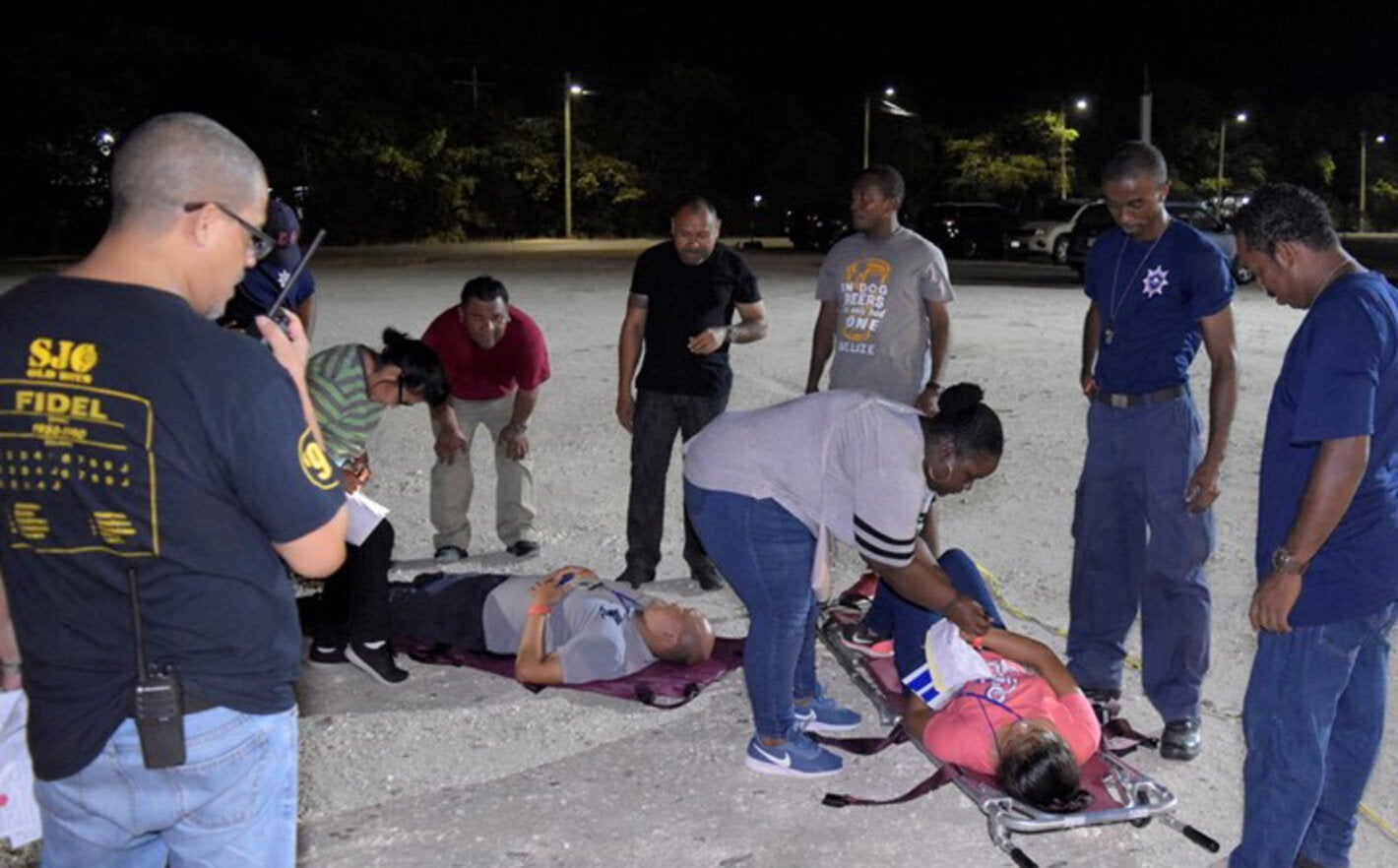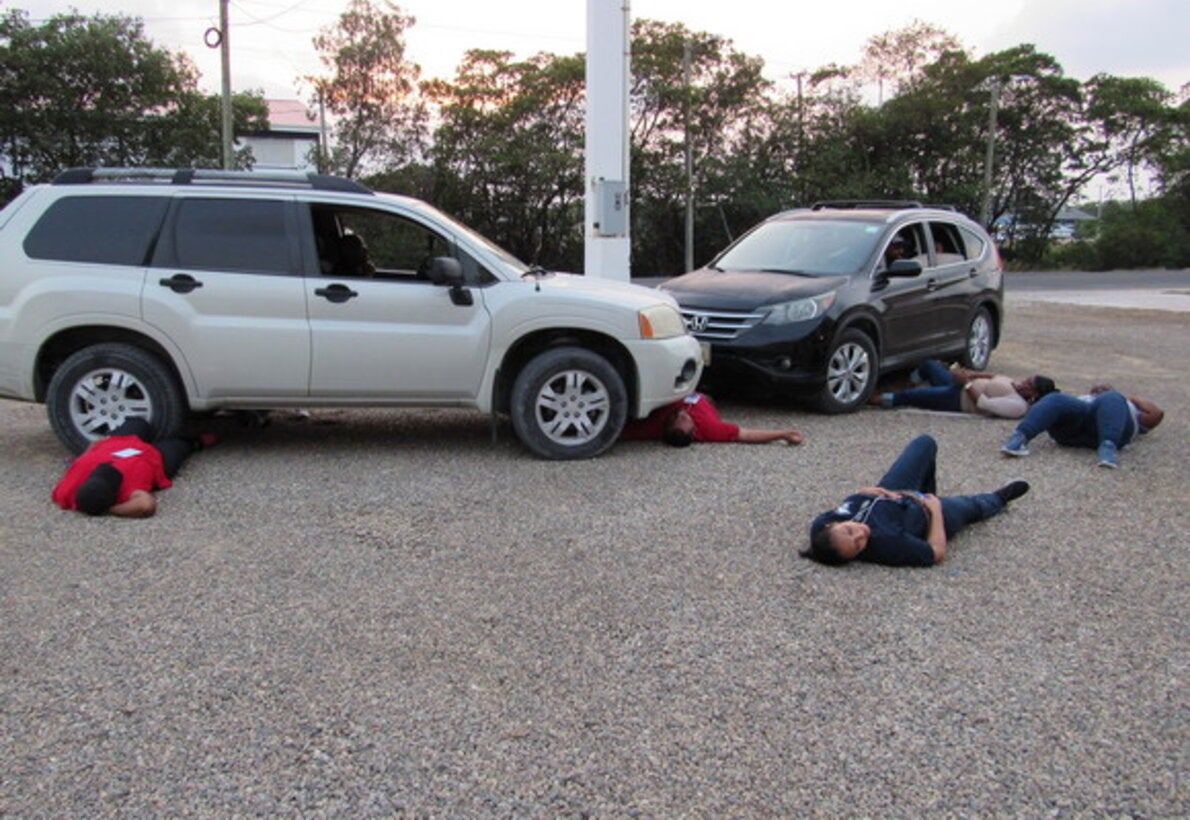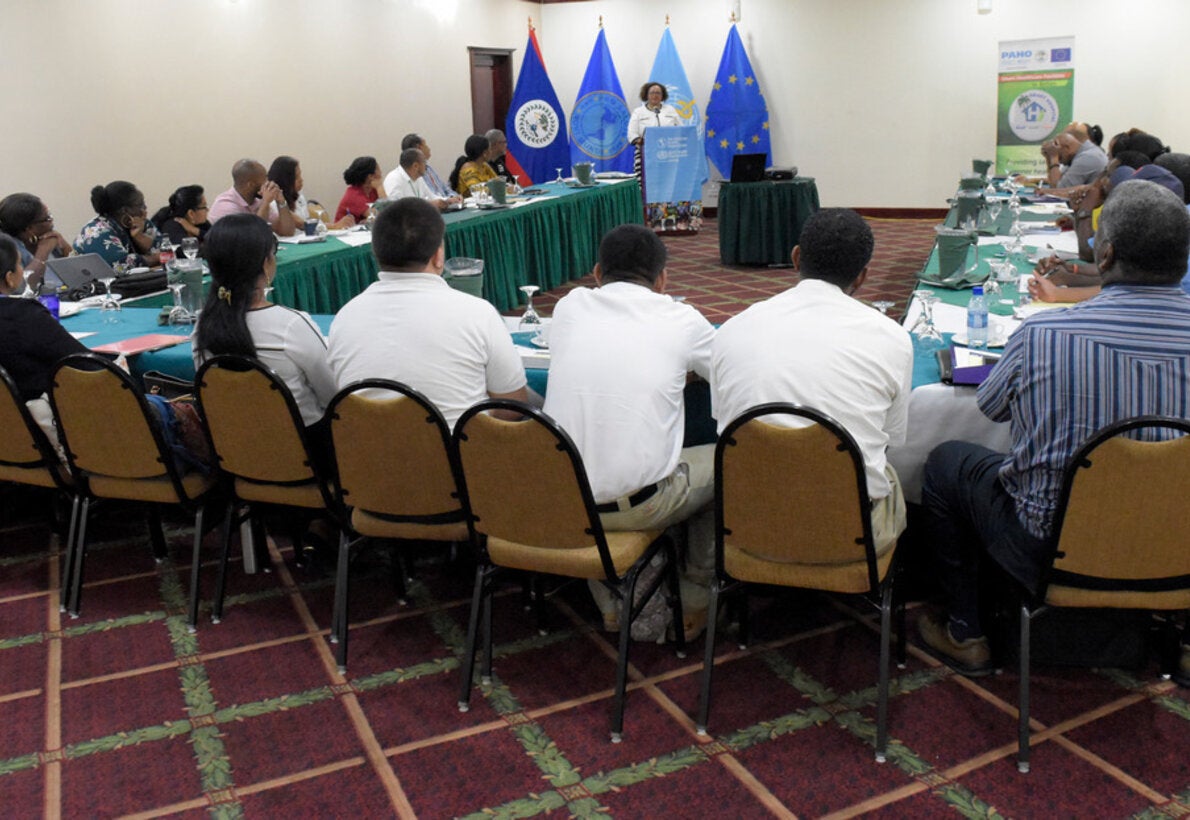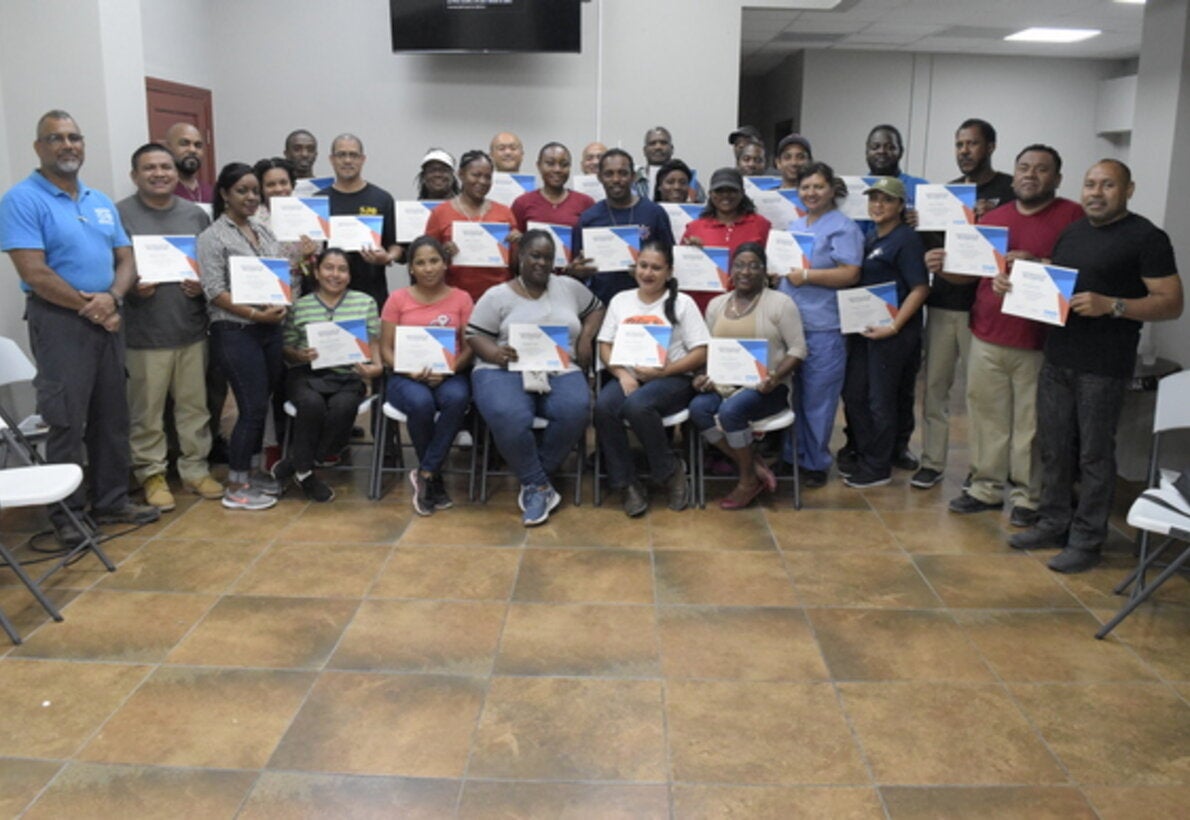
May 30, 2019 - The 911 call came at 5:45 pm on Saturday 17th May 2019. The caller on the radio sounded frantic and desperate. Help, help us please, there has been a car accident! There are people on the ground, and I can see someone trapped between the two vehicles. People are screaming and crying! Please send help as quickly as you can!Thankfully this was just a training event and the participants including the casualties were all members of the Police Force, Fire Department, Belize Emergency response Team (BERT), Ministry of Health and Karl Heusner Memorial Hospital (KHMH) taking part in the final phase of an inter-sectoral training consisting of six days of lectures, field exercises and role-playing, designed to sharpen the response skills of mass casualty responders to effectively manage events in human and/or resources-challenged areas.
As the hand-held radios came alive you could hear the trainees gathering location and other important information and requesting help from the relevant agencies. The different groups sprang into action, each bent on accomplishing their assigned responsibility and ensuring the success of the mission. Following their classroom training, control areas were identified, casualties were quickly assessed and categorized and those requiring the most urgent medical assistance were stabilized and readied for the ambulance.
The importance of this training was borne out recently in the tragic explosion aboard an island ferry boat at the dock in Belize City, which killed two young children and injured 14 adult passengers. One of the responders afterwards acknowledged in an interview that his service had little experience with dealing with that type of mass casualty and that their response needed to be strengthened.
In her opening address at the start of the training, PAHO Representative for Belize, Dr. Noreen Jack said, "the Americas rank second globally in terms of natural disasters with a quarter of the world’s disasters taking place in this region. Major emergencies, crises and disasters have become more frequent during recent decades, especially in middle and low-income countries. They affect more and more people, disrupting health sector programmes and essential services, and slowing the process of sustainable human development. Today’s disasters stem from a complex mix of factors, including climate change, global warming influenced by human behavior, socioeconomic factors causing poorer people to live in risky areas, and inadequate disaster preparedness and education." In view of this, training on the PAHO/ WHO’s Mass Casualty Management System course was a critical step towards disaster preparedness.
The Mass Casualty Management course focused on the establishment and maintenance of a functional Mass Casualty Management system as a mechanism for maximizing the saving of lives, preserving function and reducing suffering in a mass casualty incident. It emphasized prompt response with early pertinent information-sharing, scene coordination and patient management by response agencies, stressing an inter-sectoral perspective.
Ms. Joy Omini, Acting Unit Manager of the Accident and Emergency Unit at the KHMH said that even though she dealt with trauma cases on a regular basis, this training was a real eye opener. It emphasized the need for a systematic approach in dealing with Mass Casualty patients while also showing how to maximize the effectiveness of the various organizations working together during such events.
Of course, such a system must fit within the arrangements set up by the National Emergency Management Organization (NEMO) to ensure that there is no overlap or conflict with the activities of the different agencies.
Tylon Tillett PR manager at the KHMH said the course had almost immediate benefits for him. On the second day of the training, a bus taking primary school children on a field trip overturned injuring parents and children who had to be rushed to the hospital. At the hospital emergency, he said he heard the Emergency personnel speaking about triage and green and yellow classifications and he felt comforted that he understood what his team was doing and what they were going through.
The workshop was timely as focus is currently on building strong and resilient health facilities to ensure that health systems are prepared for such emergencies.
John Bodden, principal Public health Inspector said the training was important in the context of the increasing number of medical emergencies requiring the timely collaboration of specialized agencies. He saw the training as the first step in getting to a formal understanding of what mass casualty incidents required in terms of such inter-sectoral collaboration and expected the participants would return to their organizations better prepared to respond to national emergencies.
As the week came to an end participants generally found the training to be fulfilling and looked forward to sharing their new knowledge and experience with their colleagues.
Police Officer, Norman Coye, whose role was to secure the scenes and collaborate the movement of the various teams said that although he had dealt with accidents before he had never fully realized or appreciated the level of coordination required for mass casualty management.
Marie Adai, emergency personnel from BERT said the training helped her to realize what they needed to get right and planned to use the training to assist her colleagues to better prepare for such eventualities.
A European Funded Grant in support of Belize, “Health Sector Support Programme for Belize” provided most of the funding support for the hosting of this six-day training. In addition, the support provided through the Global Affairs Canada grant to the PAHO/WHO Caribbean Disaster Risk Management Programme allowed for the services of experienced mass casualty facilitator Mr. Peter Burgess.






